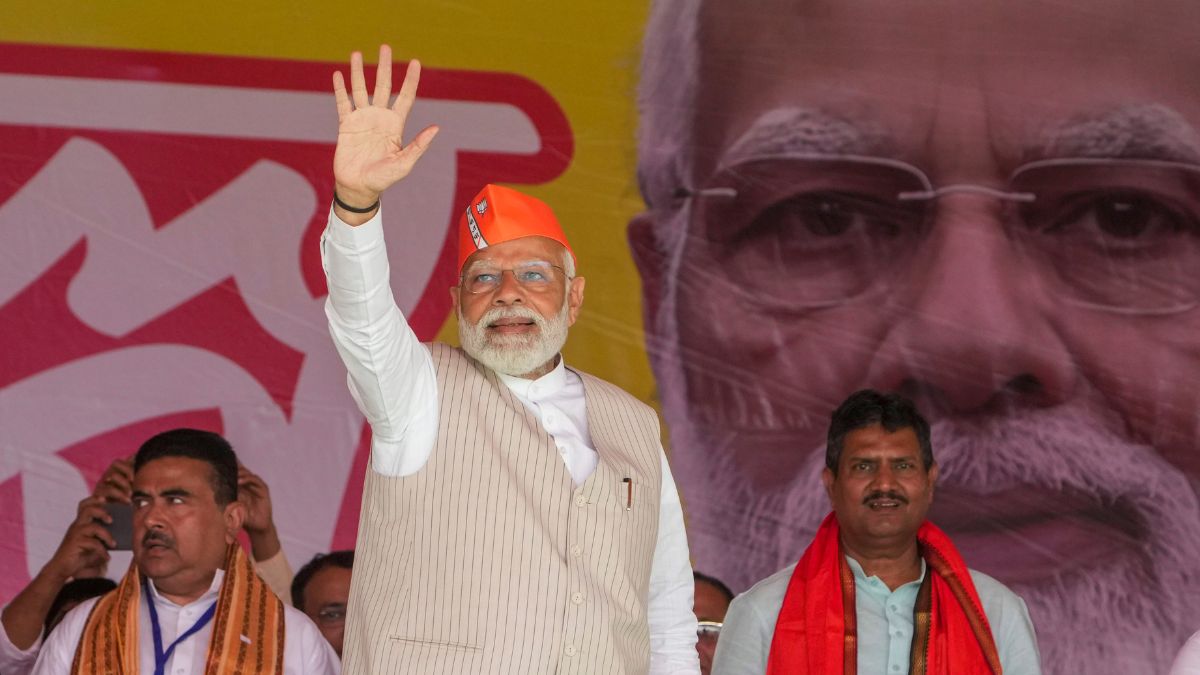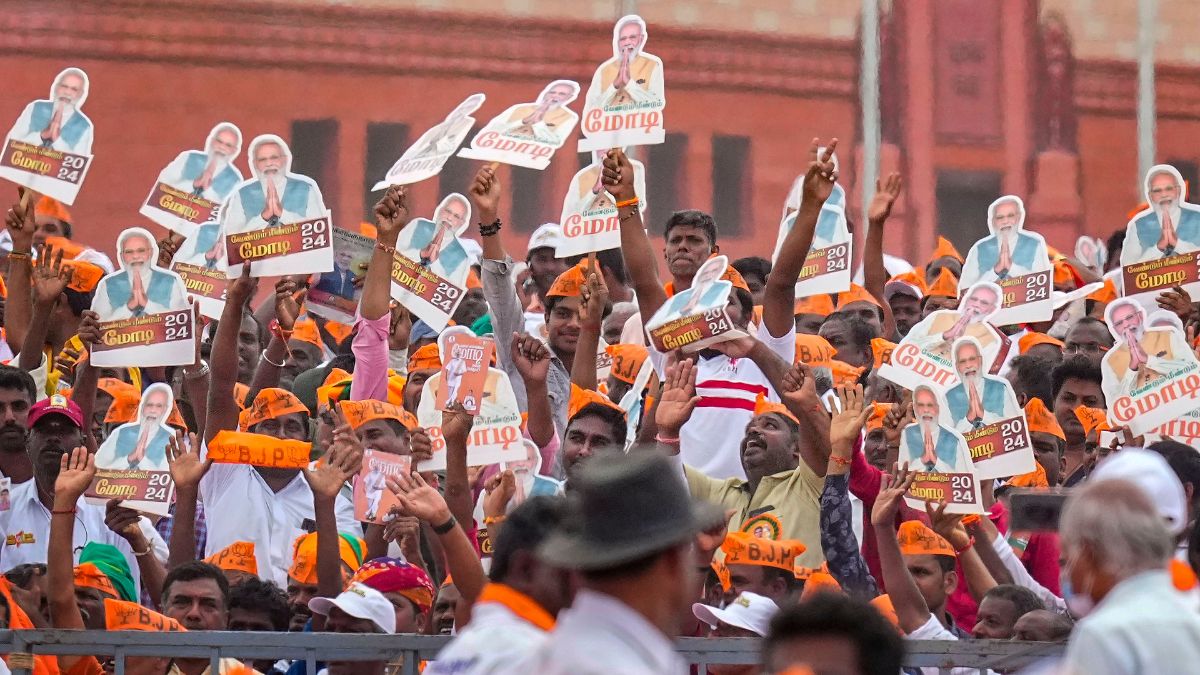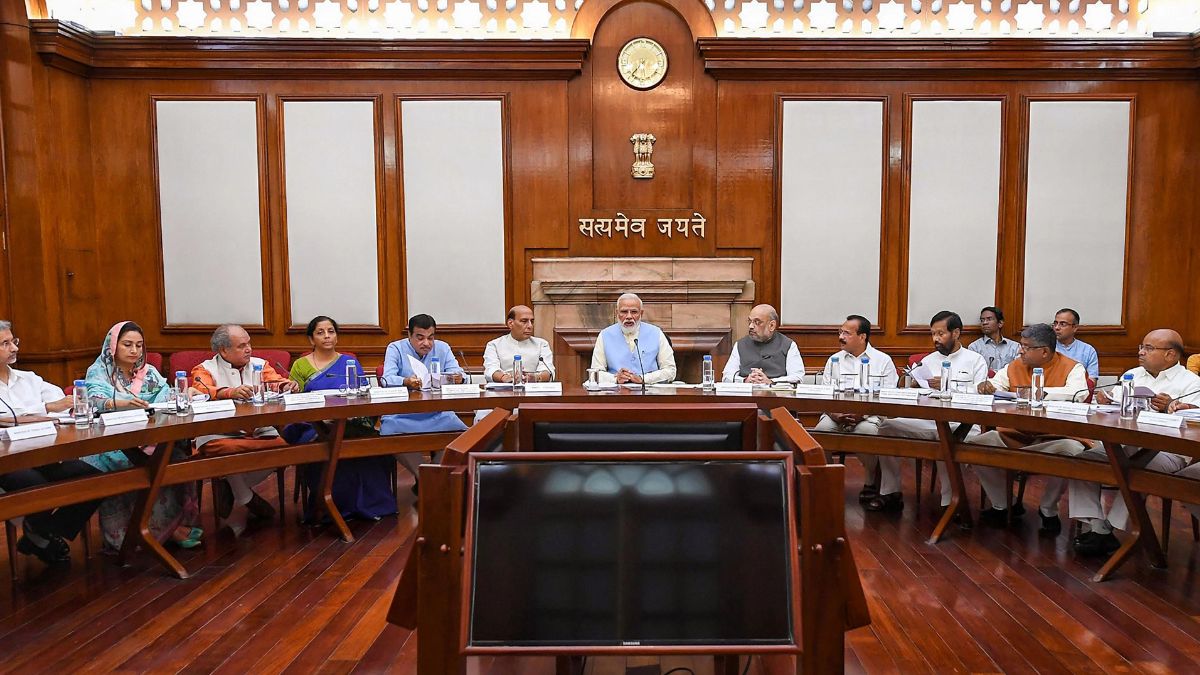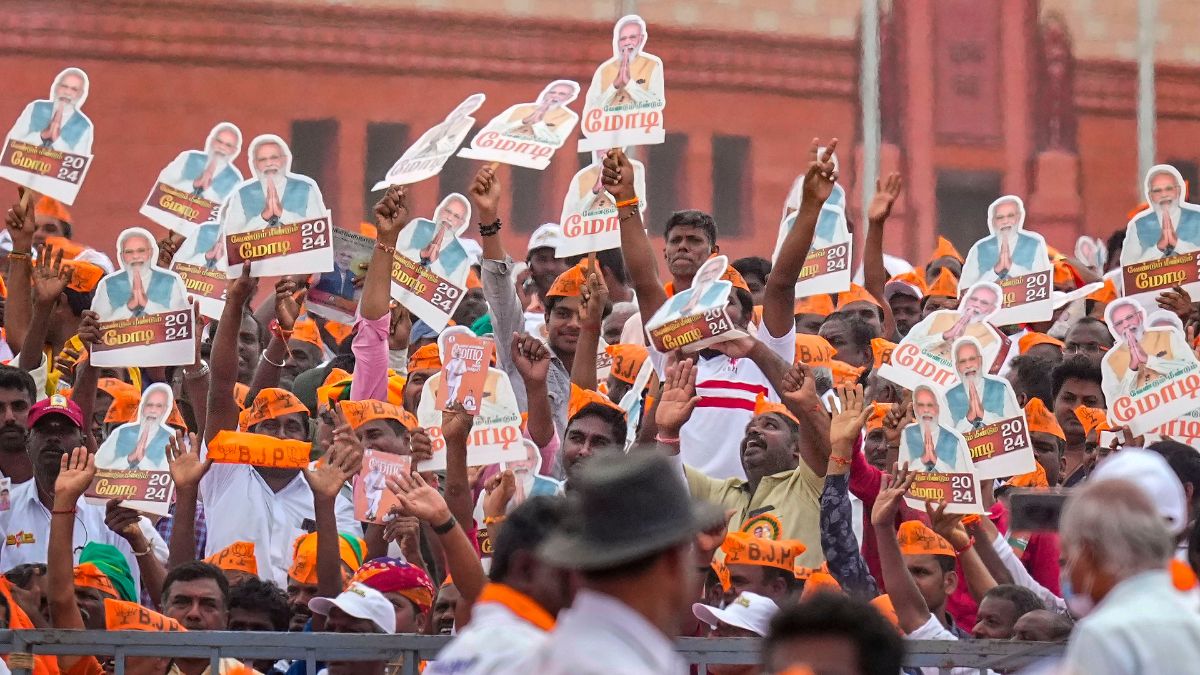What do we make of financier George Soros’ open declaration in Davos that he wants to trigger a regime change in India through his wealth? Do we take it as a reflection of the neo-imperialist tendencies of global elite that seeks to interfere with democracies when they throw up leaders that it doesn’t like? Or is it the breaking of wind of a foggy old billionaire who likes to play god? Should India be worried that a very resourceful foreigner is seeking to interfere in its domestic politics? Or is it merely unfounded alarmism?
It is easy to mock Soros, the very symbol of a cosmopolitan elite out to implement his latest ‘world-improving project’ by dipping into his seemingly bottomless resources. His declaration holds an even more sinister implication for a nation such as India whose colonial past has trampled upon its civilisational history. The process of emerging out of a colonial hangover is still underway.
With Soros, however, one must be careful before drawing sweeping conclusions. Not only one of the richest man in the world, the globalist billionaire is a motivated and perceptive philanthropist who has made political activism in favour of an “open, borderless society” his life’s mission and has committed considerable wealth towards creating an institutional network to achieve his objective.
Soros has written 14 books since 1987 elaborating his philosophy, and as The Guardian writes, unlike most members of the billionaire class, he is not an “out-of-touch plutocrat, but a provocative and consistent thinker committed to pushing the world” in the direction that he considers is “progressive”. That “direction” has often placed him at odds with nations that see his influence as a threat to sovereignty.
The man credited with “breaking the British pound” that led to “one of the most catastrophic financial events in modern history”, Soros is immeasurably wealthy and like many other tycoons, believes that he can alter the course of history through his money. This, obviously, comes from a position of great egotism, and one that Soros has admitted in one of his books The Alchemy of Finance (1987) where he writes : I have always harboured an exaggerated view of my self-importance… To put it bluntly, I fancied myself as some kind of god…"
Accordingly, Soros has set about influencing the outcomes of democracies by splashing cash. He has tried to oust George W Bush in 2004 and was one of Hillary Clinton’s biggest funders while she was running for President. But this is just the tip of the iceberg. He has allegedly committed huge amount of money in buying influence in American media with reported ties to over 30 major news organisations and “since 2003, has spent more than $48 million funding media properties, including the infrastructure of news — journalism schools, investigative journalism and even industry organizations."
Soros has similarly tried to pump in millions to overhaul the US justice system by channeling “more than $3 million into seven local district-attorney campaigns in six states over the past year” to finance DA candidates who would further his agenda and his total commitment in this race, according to The New York Times , stood at a staggering $800,000.
We get a picture of the “progressive icon” who has made vast amounts of cash and has used that cash to bankroll organisations and institutions that are relentlessly carrying forward his vision. And this political activism has caused political, social and financial upheavals. As a poignant portrait of the man put it, the billionaire “put his sons and other principals in charge of his companies and hedge funds. Thereafter, like the owner of beach frontage whose landscape is obstructed by trees, he devoted himself to cutting down whatever blocked his worldview.”
In his course of becoming one of the world’s wealthiest men, Soros courted countless controversies, including financial misdemeanors and was found guilty in France on charges of insider trading. When a man this powerful, influential and cunning turns his attention to India, we need to sit up and take notice.
What Soros gets wrong
Going by his words in Davos, where he launched a tirade against “nationalist” leaders such as Donald Trump, Xi Jinping and Narendra Modi and ranted against “rise of populism”, there is much that Soros gets wrong on rise of populism and interpretation of nationalism. In the case of India, he even makes factual errors. However, he also gets certain things right, and shows why the Left has been so successful in sustaining its ideology and converting the youth even as it faces steady erosion of political power.
In his remarks at Davos, the billionaire identified “nationalism” as the prime enemy of “open societies”. First, it is debatable whether the concept of “open society” has been good for the world. Going by the backlash against globalization — that ironically caused the rise of populist leaders and resulted in Brexit — it is evident that a sizeable number of people feel disenchanted by globalization and have seen their incomes fall and prosperity vanish even as globalists (such as Soros) became richer at their expense.
As Nobel Laureate in Economics, Joseph E Stiglitz writes in Project Syndicate : “In the US, the bottom 90% has endured income stagnation for a third of a century. Median income for full-time male workers is actually lower in real (inflation-adjusted) terms than it was 42 years ago. At the bottom, real wages are comparable to their level 60 years ago.”
While multinationals dominated, wealth inequality increased and global supply chains became distorted, this created a massive disconnect between the blue-collar workers and globalists. As old industrial centres wasted away, populists seeking to “take back control” rose, and this created a vicious cycle between cosmopolitan elites tightening control at the top and fuming at the rise of “nationalists” who were ironically benefitting from “liberal paradox”.
As The Economist explains: “The more the people turn against liberalism the more liberals are tempted to build walls against the populist tide in order to push ahead their world-improving project: political walls that insulate elite projects from popular interference and intellectual walls that protect members of the elite from having to listen to ‘bigots’.”
Second, Soros is mistaken in interpreting nationalism as the ‘great force of evil’. His mistake is not uncommon. Western commentators and policy makers are influenced by the European history of “nationalist” impulse, but the concept of nationalism is very different in a civilizational nation-state such as India, which not only shook free of colonial rule through a consolidation of nationalism — an awareness of the unity of India against foreign rule — but it is also a benevolent force in today’s context that arises from economic progress.
Speaking to US-based Heritage Foundation, external affairs minister S Jaishankar said last October : “Nationalism has a certain connotation in Europe, which is not necessarily positive, but I think in Asia, nationalism is seen very much as a sort of natural corollary to economic progress, almost like you’re independent, you progress, you are prosperous and nationalism comes with all of that…”
A month later, during an interview with French newspaper Le Monde , Jaishankar, who was at the forefront of articulating India’s position on a series of policy decisions undertaken by the Modi government that caused global concern, expanded on the difference between the concept of ‘nationalism’ in European or American sense and the Indian context and how nationalists have stood up against colonisation, against the domination of the West.
On a question whether this causes tension with the Muslim community — a key charge leveled by Soros in defence of his plan to interfere in Indian democracy — Jaishankar said : “No. It is my country that defines my nationality, not my religion, or my caste, or my language. Here in Europe, the link between language, religion and nationality is stronger. The concept of nation is different. In India, we are in a sense a civilization-state, with natural, linguistic, ethnic and religious diversity. We have never considered uniformity as a necessity or an aspiration… You tend to see us through your prism, you attribute to us a behaviour that you practice yourself. But we are not you!”
This exchange is important to understand why the likes of Soros or western commentariat repeatedly fail to understand the connotation of nationalism in Indian context.
What Soros gets right
While Soros gets the cause of rise in populism and the connotations of nationalism utterly wrong, in declaring his intention to build a network of universities that will be committed to his cause of political activism and further his ideological agenda, Soros has laid out the reasons why the progressive Left has been better at disseminating its influence among the youth more than the conservatives and the non-Left. The short answer: institution-building.
In his remarks, Soros said : “I believe that as a long-term strategy our best hope lies in access to quality education, specifically an education that reinforces the autonomy of the individual by cultivating critical thinking and emphasizing academic freedom” and pledged to donate $1 billion through his Open Society Foundations (OSF) towards creating a network of global universities and “innovative educational network” called the Open Society University Network or OSUN that ’the world really needs’.
Worth noting that Soros has been doing this for a very long time. As pointed out by him: “30 years ago I set up an educational institution that does exactly that (cultivating critical thinking and emphasizing academic freedom). It is called the Central European University (CEU) and its mission is to advance the values of the open society.”
In other words, Soros understands the role played by institutions such as universities in furthering political agendas and sustaining Left’s ideological supremacy. It is interesting to note that he has been clear about his strategy for a very long time, and arguably it has achieved some results.
As The Guardian points out, “On the eve of the Soviet Union’s dissolution, Soros published an updated version of Opening the Soviet System, titled Underwriting Democracy, which revealed his new strategy: he would dedicate himself to building permanent institutions that would sustain the ideas that motivated anticommunist revolutions, while modelling the practices of open society for the liberated peoples of eastern Europe.”
The Right’s gaining of political power and lack of heft in global institutions, while the Left’s erosion of political power and consolidation of control in transnational institutions has created what The Economist calls a ‘malign dialectic’.
“…Liberalism’s retreat as a political force is being accompanied by its advance as an institutional force: look at trans-national institutions such as the World Bank, educational institutions such as universities or syllabus-setting bureaucracies or voluntary organisations, and you see the liberal elite in its pomp. Liberal administrators are not only entrenching their power, squeezing out conservative or populist points of view… the more populists seize control of the political system the more liberals entrench themselves in their chosen caves…” putting the institutions “at war with the wider society.”
We see this dialectic play out not only in America or Europe but also in India where some liberal educational institutions have become fortresses for entrenched elites and Leftist agenda-peddlers whose views are totally out of sync with mass opinion.
“Liberal intolerance” is on the rise in the US and in Europe where Marxists (and globalist influence-peddlers such as Soros) have taken over academia and media giving rise to distorted opinion about the wider world. Very often, the media outlets fall foul of their entrenched liberalism because they tend to interpret the world through their ideological bias.
It is the same situation in India. As co-founder of India Enterprise Council Rajeev Mantri writes in Livemint : “Not only does the Indian Left enjoy state patronage and a pervasive grip on academia, it has a long history of being viciously intolerant towards contrary viewpoints. Economist and member of Niti Aayog Bibek Debroy had recounted recently how renowned Columbia University trade economist Jagdish Bhagwati was forced out of Delhi School of Economics in the 1950s.”
Mantri is right about the symptoms and causes but in order to fix it, the Right must invest in building institutions that play a decisive role in shaping opinions and consequently behavior of societies by laying down the rules of the game and enforcing those rules.


)




)
)
)
)
)
)
)
)